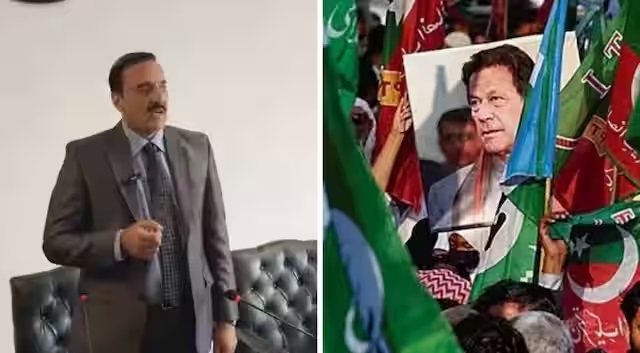The 2024 Pakistani general election was marred by allegations of widespread rigging and manipulation, especially in the Rawalpindi division, where the ruling party Pakistan Muslim League (N) (PML-N) won 11 out of 13 national assembly seats. The controversy reached a new peak on 17 February 2024, when the Commissioner of Rawalpindi Division, Liaquat Ali Chattha, resigned from his post and confessed his role in the electoral fraud.
Chattha, a senior civil servant who had served in various positions in the Punjab government, held a press conference at the Rawalpindi Cricket Stadium and revealed that he had forced his subordinates to alter the results of 13 constituencies in favor of the PML-N candidates, who were trailing by around 70,000 votes each. He claimed that he had used fake seals and stamps to change the ballot papers and the forms, and that he had acted under the pressure of some influential people.
Chattha also implicated the Chief Election Commissioner (CEC), Sikandar Sultan Raja, and the Chief Justice of Pakistan (CJP), Qazi Faez Isa, in the rigging scheme. He accused them of being complicit in the injustice and said that they deserved punishment, even the death penalty, for their betrayal of the nation. He expressed his remorse and guilt for his actions and said that he had attempted suicide earlier in the day, but failed. He then surrendered himself to the police and requested a fair trial.
Chattha’s shocking revelations have opened a new Pandora’s box in the Pakistani politics, as they have raised serious questions about the credibility and legitimacy of the election process and the institutions involved. The opposition parties, especially the Pakistan Tehreek-e-Insaf (PTI), have demanded a thorough investigation and a re-election in the Rawalpindi division, and have called for the resignation of the CEC and the CJP. They have also accused the PML-N of being behind the rigging and of trying to cover up the scandal.
The PML-N, on the other hand, has dismissed Chattha’s allegations as baseless and fabricated, and has claimed that he is suffering from mental health issues. They have also questioned the timing and the venue of his press conference, and have suggested that he is acting on the behest of some hidden forces. They have defended the CEC and the CJP, and have said that they have full confidence in the election commission and the judiciary.
The Election Commission of Pakistan (ECP) has denied any involvement in the rigging and has said that the divisional commissioners have no direct role in the electoral process. The ECP has also announced that it will conduct an inquiry into the matter and will take action against anyone found guilty. The Supreme Court of Pakistan has also taken notice of Chattha’s allegations and has summoned him to appear before the court on 19 February 2024.
The Chattha scandal has added a new dimension to the already tense and polarized political situation in Pakistan, and has cast a shadow over the democratic transition and stability in the country. It has also exposed the weaknesses and vulnerabilities of the electoral system and the state institutions, and has highlighted the need for electoral reforms and accountability. The fate of the Chattha case and its implications for the political landscape remain to be seen, but it is clear that it has opened a new Pandora’s box in Pakistan elections.


